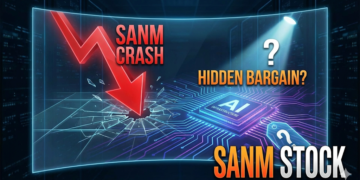N2OFF Inc. (NASDAQ: NITO) is a publicly traded company that has undergone one of the most dramatic business transformations in recent years. Originally established as a cleantech enterprise with a focus on sustainable agriculture, post-harvest food safety, and renewable energy investments, the company positioned itself as a solutions provider for pressing environmental challenges. Its early efforts revolved around technologies aimed at reducing nitrous oxide emissions in agriculture and improving food preservation to minimize waste. At the same time, N2OFF pursued opportunities in solar energy development through a ready-to-build model, aiming to capitalize on the rapid expansion of renewable energy projects in Europe and other international markets.
Despite its focus on environmental sustainability, N2OFF struggled to scale its operations to a level that matched its ambitions. Revenues remained modest while operating expenses consistently outpaced income, creating heavy reliance on external fundraising and dilutive share issuances. These financial pressures, combined with the challenges of managing diverse business lines in agriculture, cleantech, and solar energy, set the stage for a major strategic overhaul. Rather than doubling down on its original sustainability initiatives, the company’s leadership charted a bold new course that would redefine its identity and market positioning.
In 2025, N2OFF announced a transformational pivot into biotechnology through the acquisition of MitoCareX Bio Ltd., a drug discovery company specializing in novel cancer therapeutics. This acquisition marked the company’s complete shift away from renewable energy and cleantech into the high-stakes world of pharmaceutical innovation. MitoCareX is focused on targeting the mitochondrial SLC25 protein family, an area of drug development that holds potential for treating some of the hardest-to-treat cancers, including pancreatic and non-small cell lung cancer. By combining computational modeling capabilities with advanced in-vitro screening systems, MitoCareX aims to accelerate the identification and development of anti-cancer therapeutics with a differentiated scientific approach.
The deal with MitoCareX involves cash, equity, and milestone-based incentives, making it one of the most significant restructuring moves in N2OFF’s history. As part of the agreement, N2OFF committed to provide financial support for MitoCareX’s operations, ensuring that the subsidiary has the resources to pursue its ambitious research and development roadmap. This pivot also places N2OFF directly into the rapidly expanding global cancer therapeutics market, which was valued at $194.1 billion in 2024 and is expected to grow to $344.1 billion by 2031. With this acquisition, N2OFF has positioned itself as a potential player in a sector characterized by high growth potential but also substantial scientific and financial risk.
Today, N2OFF stands at a crossroads, embodying the high-risk, high-reward nature of companies that reinvent themselves in pursuit of new opportunities. Its journey from cleantech and solar energy to cancer therapeutics underscores both the challenges and volatility of emerging growth companies. While the acquisition of MitoCareX offers a pathway into one of the most lucrative industries in the world, it also raises questions about execution, funding, and strategic focus. For investors and stakeholders, N2OFF has become a case study in corporate reinvention, highlighting the delicate balance between visionary ambition and practical risk management.
N2OFF’s Sudden Pivot From Cleantech to Cancer Therapeutics
N2OFF Inc. (NASDAQ: NITO) has shocked investors with a complete strategic overhaul. Once positioned as a cleantech firm investing in solar energy projects, the company has now pivoted entirely into biotechnology through its acquisition of MitoCareX Bio Ltd., a drug discovery startup targeting hard-to-treat cancers. This transaction fundamentally changes N2OFF’s identity, risk profile, and future trajectory.
The acquisition agreement involves purchasing MitoCareX from SciSparc Ltd. (NASDAQ: SPRC), Dr. Alon Silberman, and Prof. Ciro Leonardo Pierri. Under the terms, N2OFF will pay $700,000 in cash and issue shares representing 40% of the company’s fully diluted capital stock. The sellers will also be entitled to 30% of financing proceeds (capped at $1.6 million) for five years, as well as milestone-based issuances of up to 25% of N2OFF’s common stock. Additionally, N2OFF has committed an initial $1 million investment to support MitoCareX’s operations.
This acquisition positions N2OFF in the $194.1 billion global cancer therapeutics market, which is projected to expand to $344.1 billion by 2031. On the surface, this seems like a massive growth opportunity. However, the pivot raises serious concerns that could undermine shareholder value.

CHECK THIS OUT: CEL-SCI (CVM) Stock Could Explode After Saudi Breakthrough Deal and Ondas Holdings (ONDS) Lands $2.7M Defense Order.
Strategic Drift Raises Red Flags
For years, N2OFF was a cleantech company investing in solar energy through its “Ready-to-Build” model. Its identity was tied to sustainability, agriculture, and emission reduction. Investors who bought shares on that thesis are now faced with a company whose entire focus has shifted toward oncology drug development. This pivot is not a natural adjacency—it is a radical transformation into an entirely new industry.
Such strategic drift creates major execution risks. Unlike solar energy, where the company could generate revenue through project development, biotechnology requires long, expensive, and uncertain drug discovery pipelines. The shift suggests that management may be chasing hot markets rather than executing on a coherent long-term strategy.
Dilution and Ownership Concerns
The structure of the deal itself creates immediate dilution risk for existing shareholders. Issuing 40% of fully diluted capital stock to the sellers represents a massive ownership transfer. On top of that, milestone-based issuances could add another 25% of dilution in the future. Combined with N2OFF’s history of raising funds through share issuances, investors could see their stakes continually eroded.
Adding to these concerns, the sellers are entitled to 30% of financing proceeds over the next five years. This essentially taxes future capital raises, making it harder for N2OFF to bring in funding without giving up additional value. For a company that already has a weak financial foundation, this structure is highly unfavorable.
Governance and Related-Party Risks
The acquisition also highlights governance concerns. N2OFF Chairman Amitay Weiss also serves as Chairman of SciSparc, while N2OFF board member Liat Sidi also sits on SciSparc’s board. Such overlapping directorships raise questions about conflicts of interest and whether the deal terms truly maximize value for N2OFF shareholders.
Related-party transactions often face increased scrutiny because they blur the line between independent decision-making and insider influence. For small-cap investors, this adds another layer of risk, especially in a high-stakes pivot of this magnitude.
High Costs, Long Timelines, and Clinical Uncertainty
While the cancer therapeutics market is large, drug discovery is notoriously risky. MitoCareX’s platform focuses on the mitochondrial SLC25 protein family, a promising but still experimental target. Developing therapies around it will require years of preclinical and clinical testing, regulatory approvals, and potentially billions in capital.
Even if the science is sound, success is far from guaranteed. Clinical trial failure rates in oncology are among the highest in biotech, with most candidates never making it to market. Without substantial funding and partnerships, N2OFF may struggle to bring any products to commercialization.
Loss of Focus and Identity Crisis
The pivot also means N2OFF has abandoned its earlier solar energy business model. Investors who believed in its cleantech mission are now left holding shares in a biotech company with no track record in pharmaceuticals. This kind of whiplash erodes trust in management’s ability to stick to a strategy and deliver on promises.
Moreover, pursuing biotechnology and drug discovery requires an entirely different set of skills, talent, and infrastructure. Transitioning from project finance in solar to computational biology and cancer trials is not just difficult—it’s unprecedented. Investors must question whether N2OFF is equipped to handle such a leap.
The Bearish Case for N2OFF
In the bear scenario, the risks around dilution, governance, and execution compound into significant downside for shareholders. The acquisition terms heavily favor the sellers while saddling N2OFF with dilution and financing burdens. The biotech pivot requires massive capital that N2OFF does not currently have. Clinical timelines mean revenue generation, if any, is years away. And with governance overlap, investor confidence may weaken further.
If MitoCareX fails to deliver breakthroughs, or if N2OFF cannot secure sufficient funding to support development, the company could find itself stranded with high costs, no revenue, and a shareholder base battered by dilution. The market’s patience for speculative biotech pivots is limited, and without clear milestones, N2OFF may struggle to maintain credibility.
Conclusion: A Risky Transformation with More Downside Than Upside
N2OFF’s acquisition of MitoCareX fundamentally alters its business model, moving from solar energy into the unpredictable world of cancer therapeutics. While the global oncology market is massive, the risks tied to dilution, governance, and execution are equally large. Shareholders must weigh whether the promise of future growth justifies the immediate risks.
For now, the story looks less like a growth opportunity and more like a high-stakes gamble where investors are paying the price for management’s shifting strategy. In the absence of proven biotech expertise or deep financial resources, the downside case for N2OFF remains strong.
READ ALSO: How Globalstar (GSAT)’s Strategic Apple Partnership is Changing the Satellite Game and Intel (INTC)’s Epic Comeback: Why Wall Street May Be Dead Wrong About This “Dying” Chip Giant.






